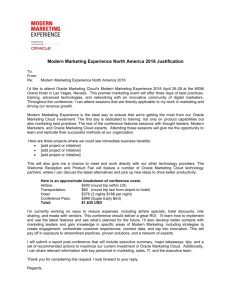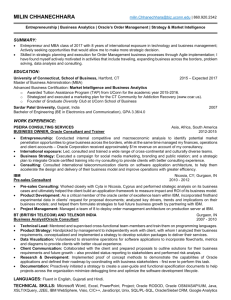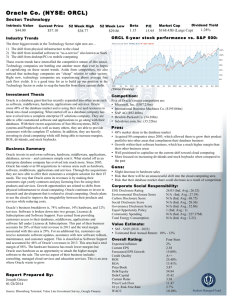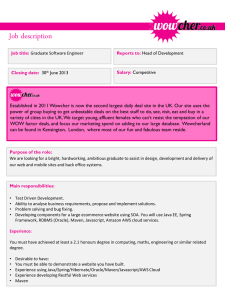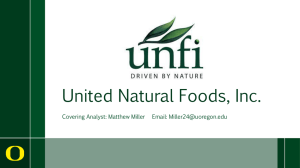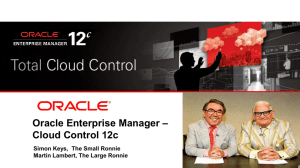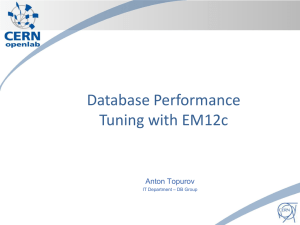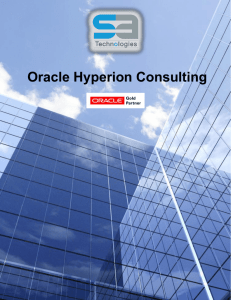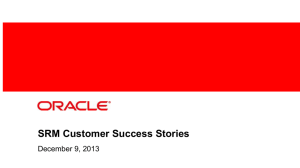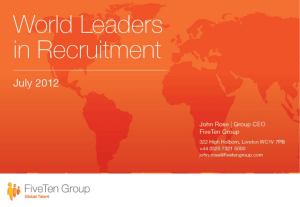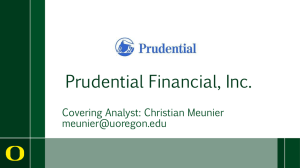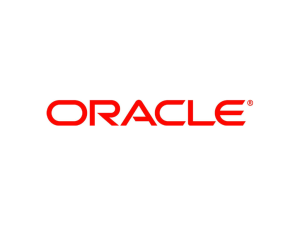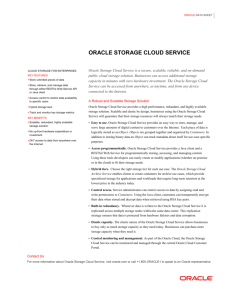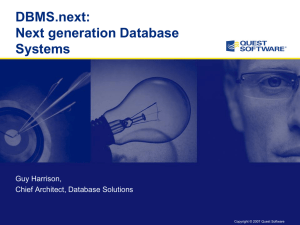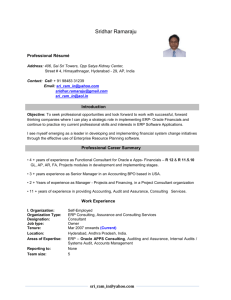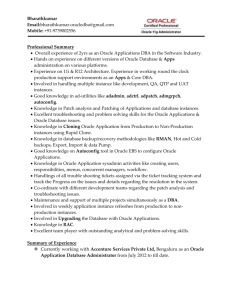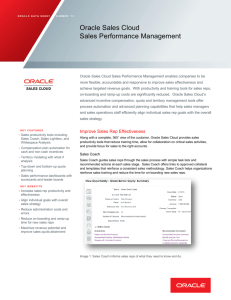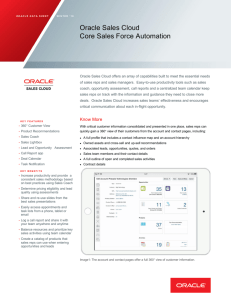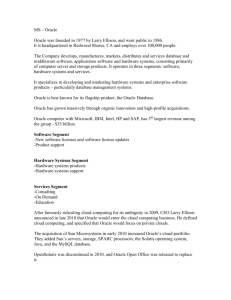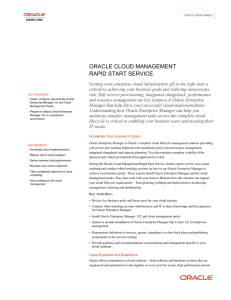ORCL PPT
advertisement
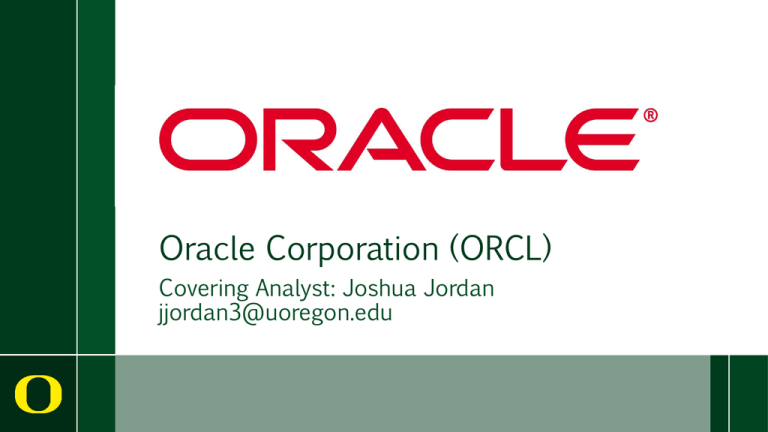
Oracle Corporation (ORCL) Covering Analyst: Joshua Jordan jjordan3@uoregon.edu Oracle History › Founded in 1977 – Larry Ellison, Bob Miner, and Ed Oates › Incorporated in 1977 – A Series of Re-Incorporations › Oracle Systems merged with Oracle Corporation – June 1, 1995 › Many Acquisitions Business Overview › Software › Americas (52%) › Hardware › EMEA (31%) › Services › Asia Pacific (17%) Software Publishing Industry › Low Concentration › High Competition Software Publishing Market Share › Enterprise Software Publishing Sub-segment 20.9% – High Concentration 7.0% Oracle 5.6% IBM 66.5% Total: $183 billion Microsoft Other Software Business › Software Licenses – Database Software › MySQL – Middleware Software › Fusion Middleware – Business Intelligence, Cloud Application Foundation, Data Integration, Java – Applications Software › Fusion Applications, Siebel, JD Edwards – Customer Relationship Management, Supply Chain Management, Financials Hardware Business › Hardware Systems Products – Engineered Systems › Exadata, Exalogic, SPARC SuperCluster – Servers › SPARC microprocessor – Storage › Sun ZFS Storage Appliance Network Attached Storage – Operating Systems › Oracle Solaris Services › Consulting › Managed Cloud Services › Education Oracle’s Strategy › Retain customers through high-margin sales channels › Innovation through research & development – Acquisitions › Brand Name Growth › Product Integration Revenue › Software – License Updates & Product Support – New Software Licenses › Hardware – System Products – System Support › Services – Consulting, Cloud, Education 2012 Revenue 43.67% Software License Updates & Product Support 26.69% New Software Licenses 10.31% Hardware Systems Products 6.67% Hardware Systems Support 12.67% Consulting, Cloud Services, Education Projected 2018 Revenue 47.42% Software License Updates & Product Support 28.68% New Software Licenses 7.88% Hardware Systems Products 5.58% Hardware Systems Support 10.44% Consulting, Cloud Services, Education Risks and Potential Drawbacks › Inexperience in Hardware Systems › Legal issues › Competition › Security Threats Positives › Margin growth in nearly all revenue segments › Expansion globally › Elite-talent retention › Continued acquisition program › An expanding stock repurchase program and increasing dividend DCF Expectations › Slightly increasing COGS as a percent of revenue › Most costs increase slightly into terminal year – Personnel related › Tax rate of 24% › Accelerating/Decelerating rates as opposed to straightline rates › Increasing capital expenditures and acquisitions DCF Valuation (50%) › Possible reasons for price differential – Market Risk Premium – Beta Implied Price 35.06 Current Price 35.92 Overvalued (2.39%) Comparables Screening › Industry › Business Operations › Size › Beta › Growth › Margins Comparables › Microsoft (MSFT) – 40% › Intel (INTC) – 5% › Salesforce.com (CRM) – 5% › CA Technologies (CA) – 30% › Red Hat (RHT) – 20% Forward Comparables Valuation (50%) › Discrepancies – Growth – Bottom-Line Margins Multiple EV/Revenue EV/Gross Profit EV/EBIT EV/EBITDA EV/(EBITDA-Capex) Market Cap/Net Income = P/E Price Target Current Price Undervalued Implied Price $27.75 27.59 39.22 38.02 44.47 97.92 $39.93 35.92 11.16% Weight 0% 0% 25% 50% 25% 0% Final Valuation Source Forward Comps DCF Price Target Current Price Undervalued Implied Price Weight $39.93 50% 35.06 50% 37.50 35.92 4.39% Implied Price Undervalued/(Overvalued) Market Risk Premium Terminal Growth Rate Terminal Growth Rate 37 2.3% 2.3% 3.0% 3.8% 4.5% 5.75% 40.5 40.5 42.8 45.9 50.6 6.25% 38.6 38.6 40.4 42.8 46.2 7.00% 36.2 36.2 37.5 39.2 41.4 7.75% 34.3 34.3 35.3 36.5 38.1 8.25% 33.2 33.2 34.0 35.0 36.3 Recommendation: Hold Tall Firs and Svigals › Strong brand name with history › Continued long-term growth – Acquisitions – High-margin sales channels › Revenue and margin growth in competitive industry › Marginal undervaluation Questions
